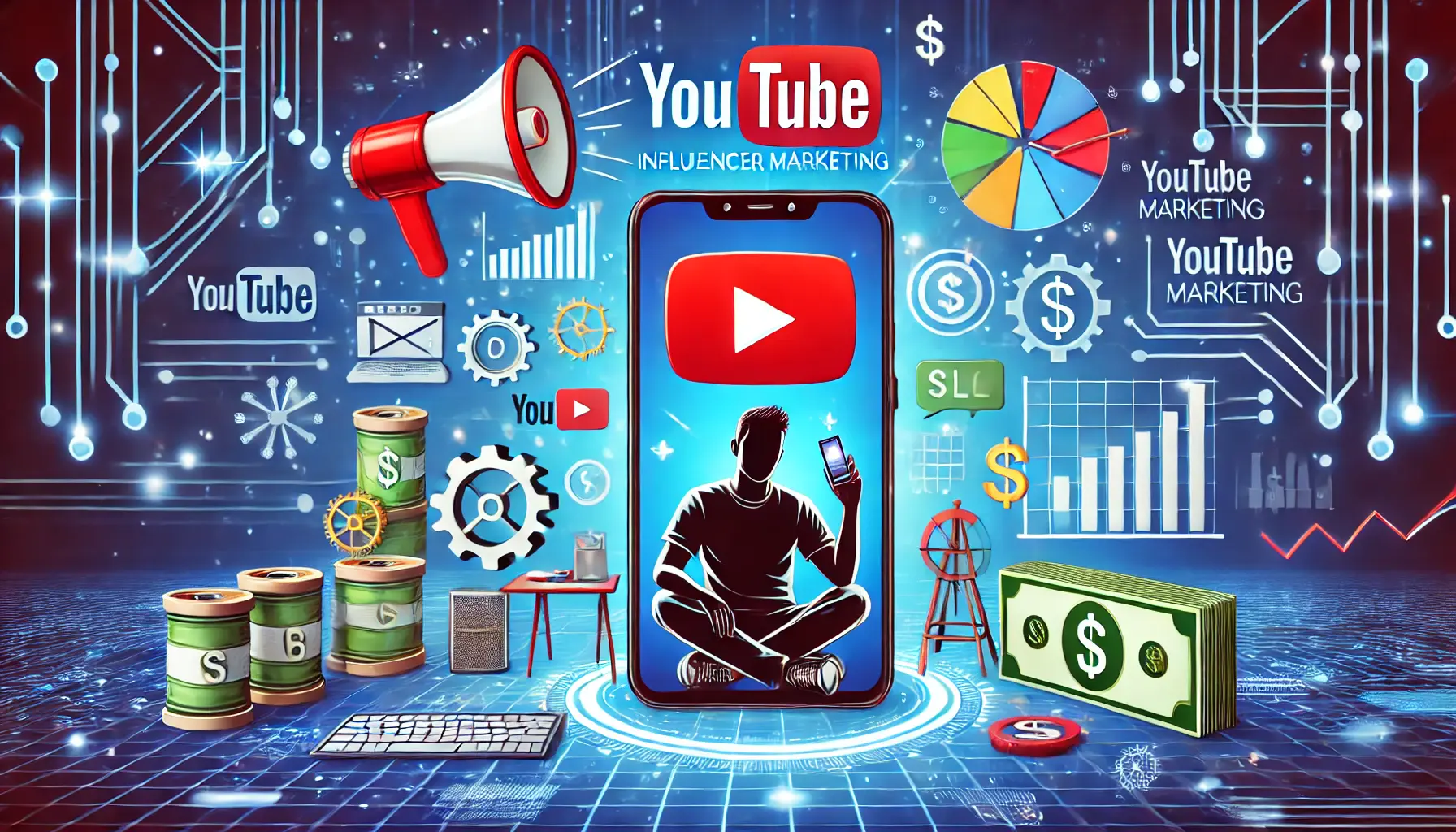In the digital age, the convergence of influencer marketing and search engine optimization (SEO) has become a pivotal strategy for brands aiming to amplify their online presence.
This synergy not only enhances brand visibility but also significantly boosts website traffic, contributing to higher search engine rankings.
Influencer marketing, once perceived as a mere trend, has evolved into a fundamental component of effective digital marketing strategies, leveraging the credibility and reach of influencers to impact consumer behavior positively.
SEO, on the other hand, serves as the backbone of digital marketing by optimizing website content to rank higher in search engine results pages (SERPs).
When influencer marketing and SEO are strategically aligned, they create a powerful mechanism that can propel a brand’s digital footprint, driving organic traffic and improving user engagement.
This article delves into the intricate relationship between influencer marketing and SEO, offering insights into how brands can harness this combination to achieve their marketing objectives.
- The Impact of Influencer Marketing on SEO
- Strategies for Integrating Influencer Marketing with SEO
- Optimizing Influencer Collaborations for SEO
- Maximizing Content Reach Through Influencer Networks
- Building Long-Term Influencer Relationships for SEO Success
- Measuring the Impact of Influencer Marketing on SEO
- Future Trends in Influencer Marketing and SEO
- Conclusion: The Symbiotic Relationship Between Influencer Marketing and SEO
- Influencer Marketing and SEO FAQs
The Impact of Influencer Marketing on SEO
Enhancing Brand Visibility and Authority
Influencer marketing significantly contributes to brand visibility and authority in the digital realm.
By collaborating with influencers who have a substantial and engaged following, brands can tap into new audiences, extending their reach beyond traditional marketing channels.
Influencers, with their authentic content and trusted voice, can introduce a brand to potential customers in a more organic and credible manner than conventional advertising.
This increased visibility not only attracts more visitors to a brand’s website but also signals to search engines that the brand is relevant and authoritative within its niche.
As influencers share content related to a brand, they generate valuable backlinks, which are a critical factor in SEO.
These backlinks enhance the brand’s link profile, improving its search engine rankings and driving more organic traffic to its website.
Boosting Social Signals
Social signals, such as likes, shares, and comments on social media platforms, play a significant role in SEO.
While search engines have not explicitly confirmed the direct impact of social signals on rankings, it is widely acknowledged that these interactions contribute to a website’s overall online presence and visibility.
Influencer marketing amplifies social signals by encouraging engagement with the brand’s content through influencer endorsements.
When influencers share a brand’s content on their social media channels, it not only reaches a broader audience but also encourages interactions from their followers.
These social signals can indirectly influence a brand’s search engine rankings by increasing its content’s reach and engagement, thereby enhancing its relevance and authority in the eyes of search engines.
Influencer marketing and SEO are not isolated strategies but are interconnected elements that, when combined, can significantly enhance a brand’s digital marketing efforts.
Strategies for Integrating Influencer Marketing with SEO
Integrating influencer marketing with SEO requires a strategic approach to ensure that both elements work cohesively to maximize their impact on a brand’s online presence.
Here are key strategies that brands can employ to effectively combine influencer marketing with their SEO efforts:
Identifying the Right Influencers
Finding the right influencers is crucial for the success of any influencer marketing campaign.
Brands should look for influencers who not only have a significant following but also boast high engagement rates and relevance to the brand’s industry.
The ideal influencer should share the brand’s values and have an audience that aligns with the brand’s target demographic.
- Conduct thorough research to identify influencers who are authoritative in your niche.
- Evaluate potential influencers based on their engagement rates, not just their follower count.
- Ensure the influencer’s audience demographics match your target market.
Creating Quality, Shareable Content
Content is at the heart of both influencer marketing and SEO.
Collaborating with influencers to create high-quality, engaging, and shareable content can significantly boost a brand’s SEO performance.
This content can take various forms, including blog posts, videos, infographics, and social media posts.
- Work with influencers to create content that provides value to their audience and yours.
- Encourage influencers to incorporate relevant keywords naturally into the content to improve its SEO potential.
- Focus on creating content that is likely to be shared, increasing its reach and generating more backlinks.
Leveraging Influencer Content for Link Building
One of the most significant SEO benefits of influencer marketing is link building.
When influencers mention a brand on their platforms, it often results in valuable backlinks to the brand’s website.
These backlinks signal to search engines that the brand’s website is a credible and authoritative source, thus improving its rankings.
- Encourage influencers to link back to your website in their blog posts or social media content.
- Collaborate on guest posts for the influencer’s blog, including a link back to your website.
- Monitor the backlinks generated from influencer collaborations to ensure they are high-quality and relevant.
It’s important to remember that the quality of backlinks matters more than quantity. Focus on earning backlinks from reputable influencers in your industry.
Optimizing Influencer Collaborations for SEO
To fully harness the potential of influencer marketing in boosting SEO, brands must optimize their collaborations.
This involves strategic planning and execution to ensure that influencer partnerships contribute positively to the brand’s search engine rankings.
Here’s how brands can optimize their influencer collaborations for SEO:
Keyword Integration in Influencer Content
Integrating relevant keywords into the content created by influencers is essential for enhancing its discoverability through search engines.
However, this integration must be natural and align with the content’s context to avoid keyword stuffing, which can negatively impact SEO.
- Identify a list of target keywords related to your brand and share them with influencers.
- Encourage influencers to use these keywords organically in their content, including blog posts, social media captions, and video descriptions.
- Analyze the performance of content containing these keywords to gauge its impact on SEO and refine your keyword strategy accordingly.
Tracking and Analyzing Influencer Campaign Performance
Measuring the performance of influencer campaigns is crucial for understanding their impact on SEO.
Brands should use analytics tools to track metrics such as website traffic, backlink quality, and search engine rankings before and after influencer collaborations.
- Utilize tools like Google Analytics to monitor the influx of traffic from influencer content.
- Employ SEO tools to assess the quality and relevance of backlinks generated through influencer collaborations.
- Regularly review search engine rankings for targeted keywords to measure the SEO benefits of influencer marketing efforts.
Encouraging User Engagement and Social Sharing
Influencer marketing can significantly boost user engagement and social sharing, both of which are beneficial for SEO.
Engaged users are more likely to share content, comment, and interact with the brand, increasing its online visibility and relevance.
- Collaborate with influencers to create interactive content that encourages user participation, such as contests, Q&As, and polls.
- Implement social sharing buttons on your website and encourage influencers to do the same on their platforms to facilitate easy sharing of content.
- Monitor social media metrics to understand user engagement levels and adjust your influencer marketing strategy to maximize engagement.
Optimizing influencer collaborations for SEO is not a one-time effort but a continuous process that requires regular monitoring, analysis, and adjustment to achieve the best results.
Maximizing Content Reach Through Influencer Networks
Expanding the reach of your content is crucial for enhancing its SEO impact.
Influencers, with their extensive networks and loyal followings, offer a unique avenue for brands to amplify their content’s visibility.
Here’s how to maximize content reach through influencer networks effectively:
Strategic Content Distribution
Distributing content through influencers requires a strategic approach to ensure it reaches the most relevant and engaged audiences.
By selecting influencers whose followers align with the brand’s target demographic, companies can ensure their content is seen by potential customers who are more likely to engage with it.
- Identify influencers who share your target audience to ensure content relevance and engagement.
- Plan content distribution around optimal posting times for each influencer’s audience to maximize reach and visibility.
Utilizing Multiple Platforms
Influencers often have a presence on multiple social media platforms, allowing brands to diversify their content distribution and reach audiences across different channels.
This multi-platform approach can significantly enhance content visibility and engagement, contributing to better SEO outcomes.
- Collaborate with influencers to share content across all their active social media platforms, including Instagram, YouTube, Twitter, and Facebook.
- Adapt content formats to suit each platform, such as creating short video clips for Instagram stories or detailed blog posts for LinkedIn.
Encouraging User-Generated Content
User-generated content (UGC) can significantly amplify a brand’s content reach and authenticity.
Influencers can encourage their followers to create and share their own content related to the brand, generating organic buzz and engagement.
- Launch campaigns that encourage followers to share their experiences with the brand or use its products in creative ways.
- Feature user-generated content on the brand’s and influencer’s platforms to acknowledge and reward community engagement.
Leveraging influencer networks for content distribution not only maximizes reach but also enhances the authenticity and credibility of the brand’s message, driving more meaningful engagement and SEO benefits.
Building Long-Term Influencer Relationships for SEO Success
For a brand’s SEO strategy to truly benefit from influencer marketing, fostering long-term relationships with influencers is key.
These enduring partnerships can lead to continuous and compounded SEO benefits over time.
Here’s how brands can build and maintain these valuable connections:
Aligning with Influencer Values and Goals
Long-term relationships are built on mutual respect and shared values.
Brands should seek influencers who not only reach their target audience but also share similar goals and values.
This alignment ensures that collaborations feel authentic to the influencer’s audience, enhancing the effectiveness of the content produced.
- Research influencers thoroughly to understand their values, interests, and the type of content they are passionate about.
- Propose collaborations that align with the influencer’s goals, such as raising awareness for a cause they care about or helping them expand into new content areas.
Providing Value Beyond Financial Compensation
While financial incentives are important, offering additional value can strengthen the influencer relationship.
This could include exclusive access to products, opportunities for co-creation, or support for the influencer’s personal projects.
- Offer influencers early access to new products or services for their feedback and reviews.
- Involve influencers in product development or content creation processes, giving them a sense of ownership and investment in the brand’s success.
Consistent Communication and Support
Maintaining open lines of communication and offering consistent support are crucial for nurturing long-term influencer relationships.
Regular check-ins, feedback sessions, and showing appreciation for the influencer’s work can go a long way in keeping the partnership strong and productive.
- Schedule regular meetings or calls to discuss past performances, upcoming campaigns, and potential areas for improvement.
- Show appreciation for the influencer’s work through shoutouts, branded gifts, or public acknowledgments.
Sustained influencer relationships not only contribute to ongoing SEO benefits but also create brand advocates who genuinely believe in and support your brand, amplifying its reach and credibility over time.
Measuring the Impact of Influencer Marketing on SEO
To ensure that influencer marketing efforts are effectively contributing to SEO objectives, it’s essential to measure their impact accurately.
This involves tracking specific metrics that can indicate the success of influencer collaborations in boosting a brand’s search engine performance.
Here’s how brands can measure the impact of influencer marketing on SEO:
Tracking Website Traffic from Influencer Sources
One of the most direct ways to gauge the impact of influencer marketing on SEO is by monitoring the traffic that comes to your website from influencer sources.
Using analytics tools, brands can track visits, duration, and behavior of users coming from influencer links.
- Implement UTM parameters on URLs shared by influencers to track their effectiveness in driving traffic.
- Analyze traffic data to identify patterns, such as increased visits following influencer posts or specific content types that drive more engagement.
Assessing Backlink Quality and Quantity
Backlinks generated through influencer marketing are valuable for SEO.
Assessing the quality and quantity of these backlinks can provide insights into the influencer campaign’s contribution to improving the brand’s search engine rankings.
- Use SEO tools to monitor new backlinks acquired through influencer collaborations and evaluate their authority and relevance.
- Track the growth in the number of backlinks over time and correlate this with changes in search engine rankings and organic traffic.
Evaluating Changes in Search Engine Rankings
The ultimate goal of SEO is to improve a brand’s visibility in search engine results pages.
Monitoring changes in rankings for targeted keywords before and after influencer campaigns can indicate their effectiveness in enhancing SEO performance.
- Identify key keywords associated with influencer content and track changes in rankings for those terms.
- Consider using rank tracking tools to automate the monitoring process and gather data over time for a comprehensive view of SEO progress.
While measuring the direct impact of influencer marketing on SEO can be challenging due to the many variables involved, focusing on these key metrics can provide valuable insights into how influencer collaborations are contributing to your overall SEO strategy.
Future Trends in Influencer Marketing and SEO
The digital marketing landscape is continuously evolving, with influencer marketing and SEO at the forefront of this transformation.
As brands strive to stay ahead in a competitive online environment, understanding future trends in these areas is crucial.
Here’s a glimpse into what the future holds for influencer marketing and SEO:
Increased Emphasis on Authenticity and Trust
Consumers are becoming increasingly savvy and skeptical of traditional advertising methods.
In response, brands will place a greater emphasis on authenticity and trust in their influencer collaborations.
Influencers who maintain genuine interactions with their audience and transparently disclose partnerships will be more valuable to brands looking to build credibility and trust with their target audience.
- Brands will prioritize long-term relationships with influencers who align with their values and ethos.
- Influencer content will focus more on storytelling and genuine experiences rather than overt promotion.
Greater Integration of SEO and Influencer Content
As the relationship between influencer marketing and SEO strengthens, we will see a more strategic integration of SEO principles in influencer content.
This will involve a more sophisticated use of keywords, hashtags, and content optimization techniques to boost visibility and engagement.
- Influencers will become more knowledgeable about SEO best practices, incorporating them into their content creation process.
- Brands will leverage influencer insights for keyword research, tapping into the language and terms used by their target audience.
Advancements in Measurement and Analytics
Measuring the impact of influencer marketing on SEO will become more refined, with advancements in analytics tools providing deeper insights into campaign performance.
Brands will have access to more detailed data, allowing them to precisely evaluate the ROI of their influencer marketing efforts and make data-driven decisions.
- New tools and technologies will emerge, offering more granular tracking of influencer-generated traffic, engagement, and conversions.
- Brands will adopt a more holistic approach to measurement, considering both direct and indirect impacts of influencer marketing on SEO and overall digital marketing objectives.
The future of influencer marketing and SEO is set to be more integrated, authentic, and data-driven, with brands and influencers working together to create content that resonates with audiences and achieves measurable results.
Conclusion: The Symbiotic Relationship Between Influencer Marketing and SEO
The digital marketing landscape is witnessing a transformative synergy between influencer marketing and SEO, a partnership that is reshaping how brands approach online visibility and audience engagement.
This comprehensive exploration has underscored the multifaceted benefits of integrating influencer marketing strategies with SEO efforts, highlighting the potential for enhanced brand visibility, improved search rankings, and a more authentic connection with target audiences.
Key Takeaways
In the journey through the intricacies of influencer marketing and SEO, several key takeaways have emerged:
- The power of influencer marketing in amplifying a brand’s reach and establishing trust with potential customers cannot be overstated. Influencers serve as bridges, connecting brands with their target audiences in a more genuine and engaging manner than traditional advertising.
- SEO, with its focus on optimizing content for better search engine rankings, benefits significantly from the quality backlinks and social signals generated through influencer collaborations. These elements work together to boost a brand’s online presence and authority.
- Strategic integration of influencer marketing and SEO requires careful planning, from selecting the right influencers and creating quality content to measuring the impact of these efforts on a brand’s SEO performance.
- The future of influencer marketing and SEO points towards a greater emphasis on authenticity, strategic content optimization, and advanced analytics for measuring campaign effectiveness.
Embracing the Future
As brands navigate the evolving digital marketing landscape, the integration of influencer marketing and SEO will become increasingly crucial.
To stay competitive and relevant, brands must embrace the trends shaping these domains, focusing on building authentic relationships with influencers, optimizing content for both users and search engines, and leveraging advanced analytics to drive strategic decisions.
In conclusion, the symbiotic relationship between influencer marketing and SEO offers a promising avenue for brands to enhance their digital marketing strategies.
By harnessing the strengths of both, brands can achieve a more dynamic online presence, foster meaningful connections with their audiences, and ultimately drive greater success in the digital realm.
Want your website to top Google search rankings? Leave the SEO to our professional agency!
Influencer Marketing and SEO FAQs
Explore frequently asked questions about the dynamic relationship between influencer marketing and SEO, offering insights for brands looking to leverage this powerful combination.
Influencer marketing boosts SEO by generating quality backlinks, enhancing brand visibility, and increasing social signals, all of which are key factors in improving search engine rankings.
Yes, small brands can significantly benefit from influencer marketing by collaborating with micro-influencers who have a highly engaged audience relevant to the brand’s niche.
Backlinks from influencer content signal to search engines that your website is a credible source, thereby improving your site’s authority and search engine rankings.
Choose influencers based on their relevance to your niche, engagement rates, and the quality of their audience to ensure they can drive meaningful SEO benefits for your brand.
No, the impact on SEO is more influenced by the quality of engagement and relevance of the influencer’s audience to your brand than by the sheer number of followers.
Brands can measure the SEO impact by tracking website traffic from influencer sources, assessing the quality and quantity of backlinks, and monitoring changes in search engine rankings.
Blog posts, videos, and social media content that are authentic, engaging, and include natural keyword integration are most effective for influencer marketing and SEO.
While influencer marketing complements SEO by enhancing content visibility and authority, it should be used in conjunction with traditional SEO techniques for the best results.











